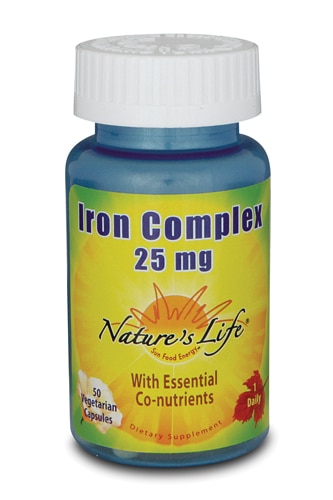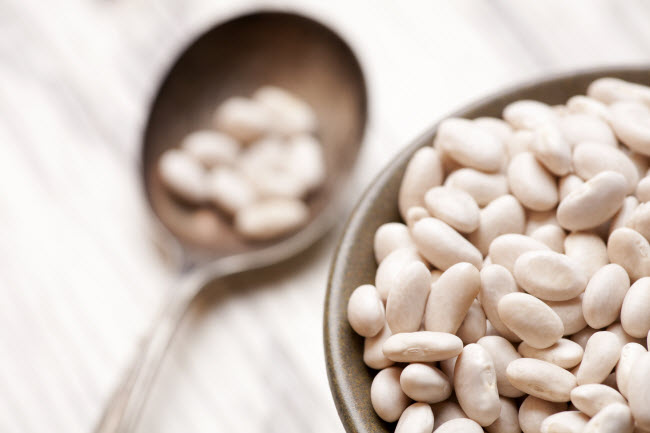Whether you eat a mostly plant-based diet, are vegetarian/vegan or a picky eater, or you have health issues with absorption, getting enough iron in your diet can be challenging. Iron deficiency is hard to recognize, too. Its symptoms – ranging from low energy to headaches to digestive distress – can be easily mistaken for something else.
If you suspect you’re not getting enough iron and you don’t eat meat, you don’t necessarily have to take iron supplements (or resort to eating meat!). Many plant-based foods are rich in iron, and with some simple nutrition tips, you can get the most out of your food to be your healthiest self.
Iron deficiency symptoms
Here are some common signs of iron deficiency you should be aware of. If you notice two or more of these symptoms, have your iron levels checked by a medical professional:
- Weakness
- Fatigue that doesn’t go away after rest
- Pale skin
- Shortness of breath accompanied with chest pain or a fast heartbeat
- Headaches
- Dizziness
- Lightheadedness
- Cold hands and feet
- Brittle nails
Who is at risk of iron deficiency?
Causes of iron deficiency vary depending on an individual’s health status and diet. Some of the most common reasons include:
A limited diet: Individuals with a limited diet due to monetary reasons, medical issues or individual preferences are all at risk for iron deficiency as well as other nutritional deficiencies.
Childhood: Children who are growing need more iron than older adults. Children can naturally be at risk due to picky food choices, a parent’s budget, economic status or health issues. Kids should be monitored to make sure they're getting enough iron through their diets before resorting to supplements, which may pose toxicity issues over time.
Blood loss: If you’ve had an accident or medical issue that has caused substantial blood loss, or if you’re a woman with heavy menstrual cycles, iron deficiency is an associated risk. Medical issues that have not been treated, such as peptic ulcers, certain types of cancers, hernias, Crohn’s disease and overdosing on over-the-counter pain relievers (which can cause gastrointestinal bleeding) can also lead to blood loss, whether known or unknown. Individuals on prescription blood thinners and frequent blood donors are also at risk due to increased blood loss over time.
Pregnancy: Women who are pregnant are naturally at risk for iron deficiency because their iron stores are also being used as a source of hemoglobin for a growing fetus. This naturally reduces the amount of availability for the mother’s body to use for her needs.
How to increase iron in your diet
By now you might be wondering if it's a bad idea to avoid meat if a limited diet is one of the main causes of iron deficiency. While our bodies absorb iron from animal-based protein (heme iron) better than the iron from plant-based protein (non-heme), a meat-based diet is not the route to go for overall health according to decades of research. Diets that are plant-based (even if not vegan) consistently prove to be optimal in their abilities to prevent many types of chronic disease, from cancer to type 2 diabetes, obesity, and heart health.
Luckily, you don’t need to eat meat to obtain enough iron. Below are five smart ways to get enough iron in your diet without eating meat—or even taking an iron supplement.
1. Start with food: choose meatless iron-rich foods
Educate yourself about meatless iron-rich foods. Although many are considered non-heme iron, a diet high in plant-based sources of iron and nutrient-dense iron-fortified food sources makes it easy to absorb enough. Remember, an excess amount of iron is not necessary. Add these iron-rich vegetables and meatless foods to your diet:
- Legumes (all beans, peas and lentils)
- Soy milk, soybeans, tofu, tempeh
- Peanuts and peanut butter
- Dark green leafy vegetables, such as spinach and kale
- Some dried fruits including raisins, goji berries, apricots, mulberries and dates
- Iron-fortified whole grain hot and dry cereals (fortified instant oatmeal, Cheerios, Cream of Wheat, etc.)
- Infant iron-fortified breakfast cereals
- Seafood (if you’re not vegan or vegetarian)
- Ancient grains such as quinoa or quinoa flakes, amaranth, and teff
- Oats and oat bran
- Pumpkin seeds, hemp seeds and chia seeds
- Sesame seeds and tahini (ground sesame seed paste)
- Cashews and cashew butter
- Pistachios
- Canned organic pumpkin
- Raw cacao powder and unsweetened cocoa powder
- Cacao nibs and dark chocolate
- Spirulina powder
- Potatoes
- Blackstrap molasses (limited servings; high in sugar)
2. Pair iron-rich foods with vitamin C-rich foods at meals
Non-heme iron is most easily absorbed when paired with foods high in vitamin C during meals. Luckily, all fruits and vegetables are high in vitamin C, so be sure to eat enough produce at every single meal. This way, when you eat a non-heme source of iron, your iron absorption will be as high as possible. As a bonus, vitamin C also supports beautiful skin, natural collagen development and maintenance, a healthy immune system, and even helps reduce anxiety and post-exercise recovery. You can’t go wrong with produce high in vitamin C! Foods especially high in vitamin C include the following choices:
- Mango
- Strawberries
- Pineapple
- Broccoli
- Kale
- Spinach
- Collards
- Romaine
- Red bell peppers
- Cantaloupe
- All citrus fruits
- Kiwis
- Apricots
- Sweet potatoes
- Regular potatoes
- Tomatoes
- Winter squash
- Guava
- Papaya
- Some dried fruits including apricots, goji berries, mulberries and golden berries
- Some superfood powder, including camu camu powder and amla powder
Some juices, such as orange juice, are also good sources of iron. However, before resorting to juices, choose whole food sources of fruit first since they are richer in nutrients, lower in sugar and higher in fiber.
3. Avoid iron-depleting beverages
Some beverages can affect iron absorption due to being high in tannins or being sources of caffeine (which trigger mineral loss through the urine). You don’t have to give these up completely, however. The easy solution is to avoid drinking these beverages with meals containing iron or drinking them multiple times per day. Water, herbal tea or fruit-infused waters are all good alternatives for most times of the day. Beverages that can interfere with iron absorption include:
- Red wine (high in tannins)
- Decaf black tea and coffee (high in tannins)
Also avoid supplements with caffeine, since these will also affect absorption in some individuals.
4. Get enough B-12 and folate from your diet
Both of these B vitamins also affect iron absorption, and deficiencies in one of them or both of them can often go overlooked as a cause for iron deficiency in children, teens and adults. Vegans should take a sublingual B-12 supplement since it is not readily available in plant-based foods, and not all fortified foods with B-12 may provide enough for every person. Five micrograms of a sublingual B-12 supplement daily is often enough to boost levels if taken consistently; some individuals may need less.
Vegetarians and individuals who eat seafood, however, can obtain plenty of B-12 from some nutrient-dense meatless animal sources. Nutrient-dense vegetarian sources of B-12 include nonfat or low-fat yogurt (choose one without added sugar), nonfat or low-fat kefir (cultured milk), and eggs (choose pastured, organic and/or cage-free if possible). Seafood, if you eat it, is also a good source of B-12. Vegans may eat fortified foods with B12 including fortified whole grain cereals, fortified alternative milks (some nut and soy milks, etc.) and other fortified sources such as nutritional yeast, but they should have B12 levels regularly tested if not taking a supplement since absorption from foods and beverages may vary greatly in each individual.
Folate, another B vitamin, is found mostly in plant-based foods, so be sure to eat a variety of folate-rich foods during most of your meals. Foods naturally high in folate include the following choices.
- Asparagus
- Oranges
- Legumes (beans, peas, lentils)
- Peanuts and peanut butter
- Leafy greens
- Beets and beet greens
- Brussels sprouts
- Broccoli
- Some nuts and seeds including walnuts and flax seeds
- Wheat germ
- Papaya
- Eggs (for vegetarians)
- Bananas
- Avocados
5. Eat a varied diet—including fermented and cultured foods
By now, you may have realized that eating a variety of foods is extremely important to prevent nutrient deficiencies. Eating a varied diet provides not only more nutrients overall, but also exposes you to more antioxidants and phytochemicals in plant-based foods that provide disease-fighting benefits, along with a variety of types of fiber for optimal digestive health.
Some studies show that eating fermented and cultured foods, such as kefir, kimchi, yogurt, sauerkraut and miso, also help to boost nutrient-absorption due to improved gut health. Since our microbiomes are responsible for helping us get the most out of our food, it’s important to consume foods high in probiotics for the best benefits. Fermented foods and cultured foods are great choices. Choose whichever ones you tolerate and enjoy the most. Keep in mind that, while no studies have consistently proven that fermented and cultured foods directly boost iron absorption, many are excellent sources of B12 which may help indirectly. Think of them as a bonus to help you get the most out of your food as possible.




